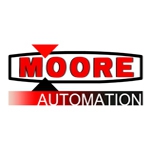product categories
- Bently Nevada
- ABB DCS/PLC
- ABB Bailey
- Emerson Ovation
- Emerson DeltaV
- Emerson Epro
- Foxboro DCS
- Yokogawa DCS
- TRICONEX/Tricon
- General Electric
- Siemens
- Woodward
- Klockner Moeller
- Indramat
- B&R
- Honeywell DCS
- ICS Triplex
- HIMA DCS
- Bachmann
- SEW
- Schneider Electric
- KUKA robot
- Motorola VME
- ProSoft
- Hitachi DCS
- GE Fanuc
- Bosch Rexroth
- Beckhoff
- Berger Lahr
- Koyo
- Kollmorgen
- Panasonic
- Pilz
- VIPA
- Xycom
- Reliance Electric
- Phoenix Contacts
- Omron
- Fuji Electric
- Danfoss
- Toshiba
- Opto 22
- Yaskawa
- Mitsubishi
- Telemecanique
- Texas Instruments
- Lenze
- Lauer
- Siemens Moore
- EPRO
- EMERSON
- OTHER
- view all
Man vs. Machine: Are Robotics in Manufacturing for Everyone?
Man vs. Machine: Are Robotics in Manufacturing for Everyone?
In the race for efficiency and innovation, industries worldwide have turned to automation.
Robotics, with their promise of precision,speed, and repeatability, have captivated many sectors.
This includes aerospace and automotive manufacturing.
There's a general view that industrial automation is the answer to all manufacturing challenges.
Given the daily emergence of new technologies,it is easy to comprehend why.However, are robotics suitable for
all individuals?As we will see, the answer is not as simple as it initially appears.
When Robots Aren't the Answer
The disadvantages of robots
Industry giants like Mercedes-Benz, Toyota, Boeing, and Tesla have attempted to incorporate high levels
of automation into their production lines.The goal of this action was to improve business processes.
However, these attempts have sometimes led to unforeseen automation challenges.As well as a reversion to
more manpower-reliant processes.
Mercedes-Benz Group withdrew Sindelfingen factory assembly line robots in 2016 due to difficulty meeting
rising demands for vehicle customization.Markus Schaefer, then head of production, remarked that humans
had to play a more significant part in industrial processes again.Especially to cater to the variety and pace of changes.
Similarly, in 2014, Toyota phased out robotics in key production areas.
Emphasising the need for skilled workers to pinpoint problem areas. In both instances,
the importance of flexibility and the balance between man and machine were clear.
In aerospace manufacturing, a major setback occurred in the summer of 2019 when Boeing's 777 fuselage production
automation system failed.Despite its new approach, the system took too long to set up and was inaccurate.Which,
eventually led Boeing to revert to more traditional methods involving human machinists.
Likewise, in April 2018, Tesla's ambitious Model 3 production plan stumbled upon the pitfalls of over-automation.Elon Musk
admitted to an over-reliance on a "crazy, complex network of conveyor belts" that slowed down production significantly.
Tesla had to re-evaluate its manufacturing strategy, with Musk accepting the need for more human workers in the assembly line.
These cases show that full industrial automation isn't always the golden ticket. Fixed automation systems may be useful for
mass production,but they lack the flexibility of human-robot collaborations.
-
Triconex 3603E 20V DC Digital Output Module
-
WOODWARD 9905-864 Steam turbine controller
-
WOODWARD 9905-860 Steam turbine controller
-
EMERSON PR6423/008-130 CON021 Eddy Current Sensor
-
EMERSON PR6426/010-000 CON021/916-160 Eddy Current Sensor
-
EMERSON KJ2201X1-BA1 12P3162X202 Logic Solver
-
EMERSON KJ1501X1-BC3 12P3935X062 DC Power Supply
-
Schneider Electric ATV61HU75N4 Variable speed drive




































